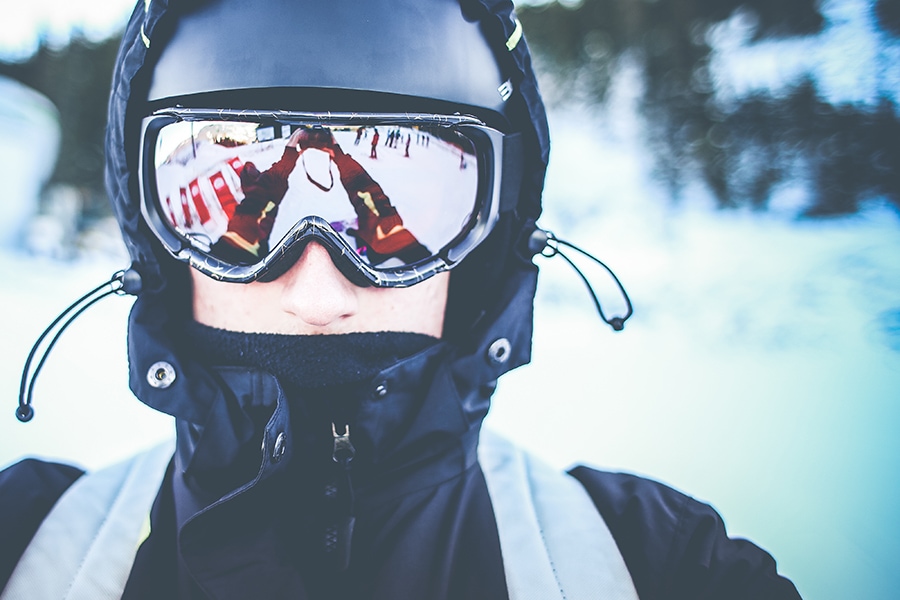Studies show that sun exposure, no matter what the season, can increase the risk of cataracts, growths (including cancer), macular degeneration, wrinkles, glaucoma, or a condition called snow blindness or photokeratitis.
Photokeratitis is an excruciating eye condition that occurs when your eye is exposed to invisible rays of energy called ultraviolet (UV) rays, either from the sun or from a man-made source1. Essentially, it is similar to getting sunburned in the eyes during the winter because snow and ice reflect 80% of the sun’s ultraviolet rays, even in overcast weather. Your eyes are most at risk between the hours of 10am and 3pm when UV rays are at their strongest.
It is easy to remember to wear UV protected sunglasses during the summer, when we are outside on the beach or at the pool, but how many of us remember to wear them during the winter when we spend most of our time indoors?
Here are some tips to keep your eyes safe and healthy this winter season.
- Wear sunglasses with UV protection
Our office can assist you in finding the correct lenses for you that will protect your eyes. - Wear a Hat
A hat blocks out the sun’s harmful rays which in turn keeps your eyes protected and can even keep your skin looking younger. Wide brimmed hats are optimal for protection. Remember that UV rays can be just as harmful from behind a cloud as they are on a bright sunny day. - Wear Goggles with UV protection
If you are active outside or do any kind of extreme winter sport such as skiing or snowboarding, you have a higher risk of exposure to photokeratitis and/or getting debris in your eyes. Goggles not only help protect your eyes from snow blindness but it also from debris. - Wear Sunscreen
Sunscreen is always important, even in the winter. - Keep Your Eyes Moist
Have eye drops on hand for whenever your eyes get dried out or irritated by the cold. Cold dry wind can irritate your eyes as well as dry heated indoor air. It is important to keep eye drops on hand to manage uncomfortable dry eye.
Reference:
“What is Photokeratitis — Including Snow Blindness?”


